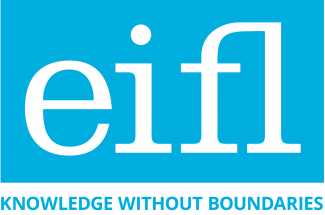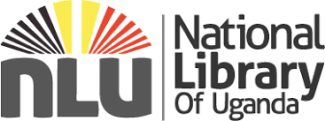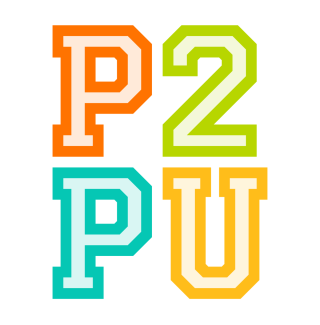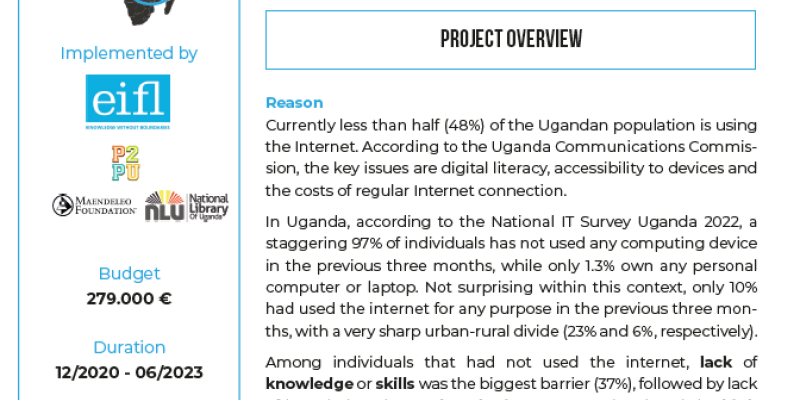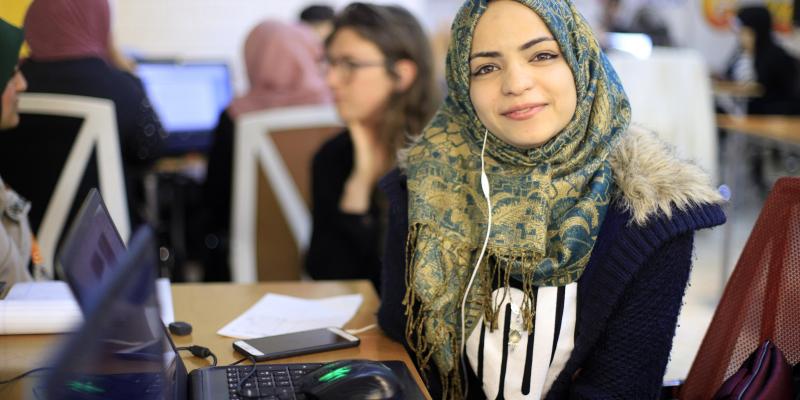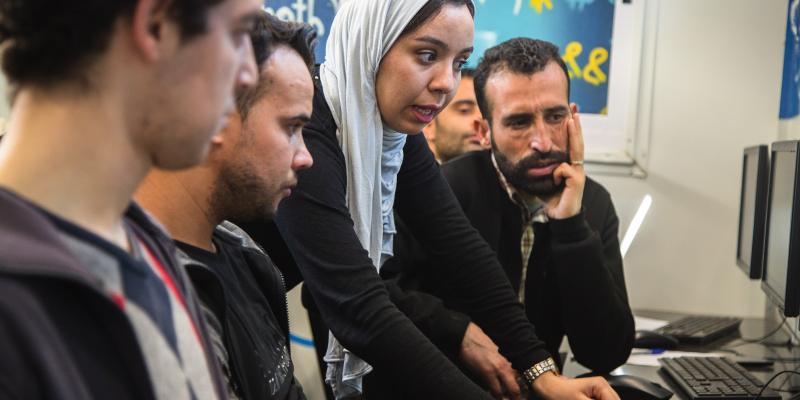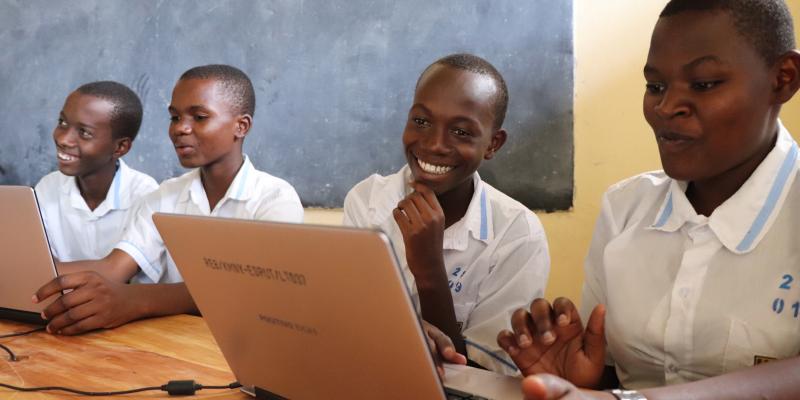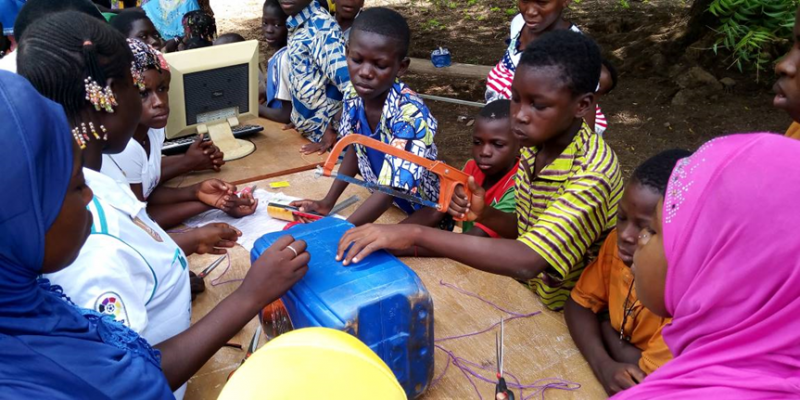Less than half (48%) of Ugandans use the Internet due to issues like digital literacy, device accessibility, and Internet costs. A staggering 97% have not used computing devices in the past three months, with only 1.3% owning personal computers. Lack of knowledge or skills (37%), ignorance about the Internet (28%), and high costs (26%) hinder usage. With limited job opportunities for the young population, enhancing digital skills and promoting entrepreneurship is vital.
In Uganda, the Digital Skills @ Your Local Library initiative utilized existing library networks with ICT centers and internet access to provide affordable and accessible digital literacy training, benefiting vulnerable groups like young people, women, and rural communities. Trained librarians became digital literacy providers, offering face-to-face training on various skills, including MS Office, online safety, and digital marketing. Learning circles using free online resources were also employed, with a focus on income-generating skills based on learners' needs. Mobile digital literacy camps extended training to rural and resource-limited areas.
- 50 librarians and volunteers were trained to provide digital and mobile literacy training in their communities
- Over 14.000 youth and women were equipped with basic digital and mobile literacy skills through library training, outreach events and mobile digital literacy camps
- Over 1000 women and youth participated in learning circles organised by libraries, obtaining a wide range of entrepreneurial, technical, craft-making and other skills
--> Click HERE to access the map showing all libraries engaged in the digital skills project.
